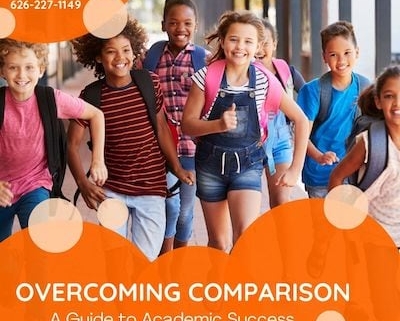On their academic journeys, students often focus on mastering subjects, honing study skills, and managing their time effectively. While these are crucial, there’s an often-overlooked factor that can significantly enhance academic performance: practicing gratitude. Incorporating gratitude into daily life can lead to numerous benefits, including improved mental health, better relationships, and enhanced academic performance. Here’s how practicing gratitude can make a positive impact on students’ academic journeys.
1. Enhancing Mental Health and Well-being
Gratitude has been shown to improve overall mental health, which is directly linked to academic performance. When students practice gratitude, they experience higher levels of positive emotions and lower levels of stress and depression. This emotional stability allows them to focus better on their studies, absorb information more effectively, and approach exams and assignments with a clear and calm mind. A positive mindset nurtured by gratitude can transform the academic experience from one of stress and anxiety to one of engagement and enthusiasm.
2. Improving Concentration and Memory
Regularly practicing gratitude can enhance cognitive functions such as concentration and memory. Gratitude helps to foster a positive emotional state, which is conducive to better learning. When students are in a positive mood, they are more likely to engage deeply with the material, retain information longer, and recall it more accurately. A student who starts their day by reflecting on what they are thankful for is likely to approach their studies with a focused and open mind, leading to more productive and effective learning sessions.
3. Boosting Motivation and Goal-Setting
Gratitude can significantly boost a student’s motivation and drive to succeed. When students take time to appreciate their accomplishments and the support they receive from others, they develop a stronger sense of purpose and ambition. This positive reinforcement encourages them to set higher goals and work diligently to achieve them. By acknowledging the progress they have made and the resources at their disposal, students are more likely to stay motivated and persevere through academic challenges.
4. Enhancing Social Relationships
Gratitude fosters better relationships with teachers, peers, and family members, all of which play a crucial role in academic success. When students express gratitude towards their teachers, they build a positive rapport that can lead to a more supportive and enriching educational experience. Similarly, grateful students are more likely to collaborate effectively with their peers, participate actively in group projects, and seek help when needed. Strong social connections provide a robust support system that can enhance academic performance.
5. Encouraging a Growth Mindset
Practicing gratitude can promote a growth mindset, which is essential for academic success. A growth mindset is the belief that abilities and intelligence can be developed through dedication and hard work. Gratitude helps students appreciate the learning process and recognize the value of effort and persistence. By focusing on what they have learned and the progress they have made, students are more likely to embrace challenges, learn from setbacks, and continue improving.
6. Practical Ways to Practice Gratitude
To harness the benefits of gratitude, students can incorporate simple practices into their daily routines. Keeping a gratitude journal, where they write down things they are thankful for each day, can be a powerful tool. Encouraging students to express gratitude verbally to teachers, classmates, and family members can also reinforce positive relationships and a supportive learning environment. Additionally, mindfulness and meditation practices that focus on gratitude can help students cultivate a deeper sense of appreciation and well-being.
Takeaways
Practicing gratitude is a powerful yet often underestimated tool for improving academic performance. By enhancing mental health, boosting motivation, improving concentration, fostering better relationships, and promoting a growth mindset, gratitude can transform a student’s educational experience. Encouraging students to practice gratitude daily can lead to not only better grades but also a more fulfilling and balanced academic journey.



